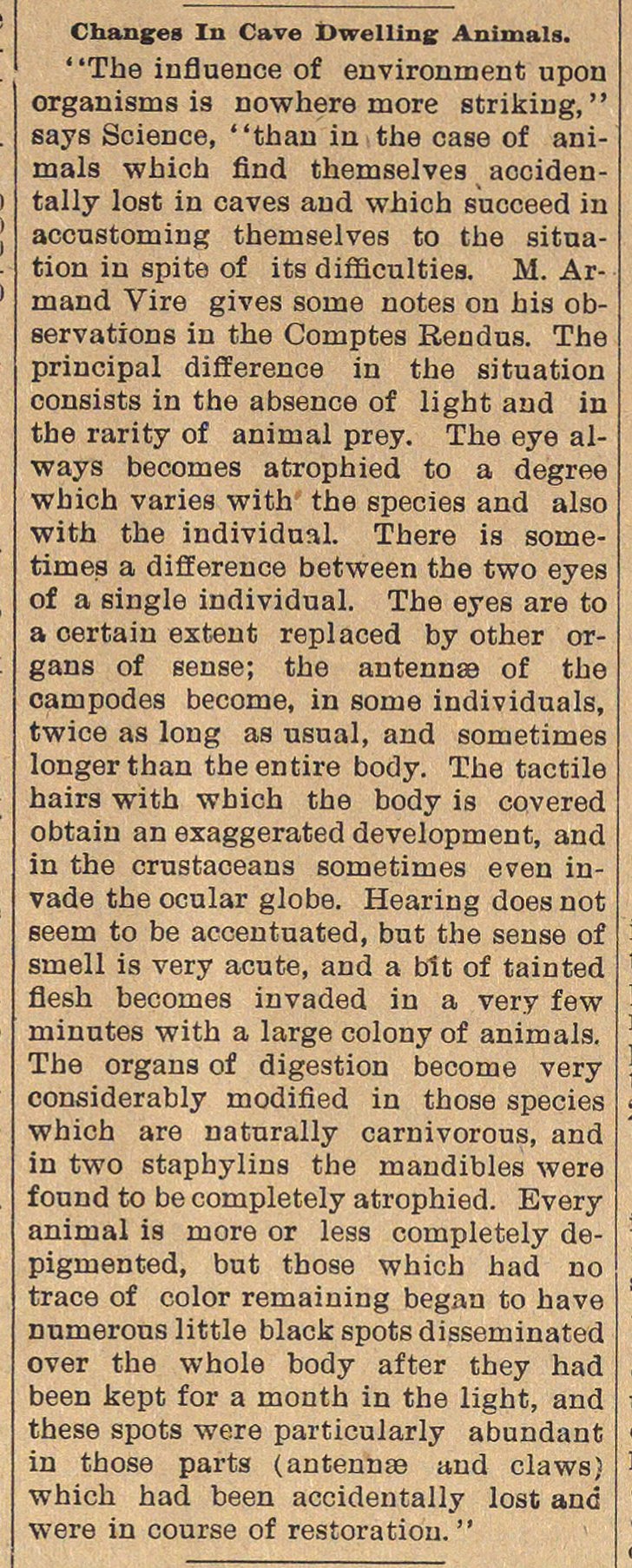Changes In Cave Dwelling Animals

"The influeuce of environment upon organistas is nowhere more striking, " says Science, "than in the case of animáis which find themselves accidentally lost in caves and which succeed in accustoming themselves to the situation in spite of its difflcultiea. M. Armand Vire gives some notes on his observations in the Comptes Reudus. The principal difference in the situation consists in the absence of light and in the rarity of animal prey. The eye always becomes atrophied to a degree which varíes with the species and also with the individual. There is sometimes a difference between the two eyes of a single individual. The eyes are to a oertain extent replaced by other organs of sense; the antennse of the campodes become, in some individuals, twice as long as usual, and sometimes longerthan theentire body. The tactile hairs with which the body is covered obtain an exaggerated development, and in the crustaceans sometimes even invade the ocular globe. Hearing does not seem to be accentuated, but the sense of smell is very acute, and a bit of tainted flesh becomes invaded in a very few minutes with a large colony of animáis. The organs of digestión become very considerably modified in those species which are naturally carnivorous, and in two staphylins the mandibles were f ound to be completely atrophied. Every animal is more or less completely depigmented, but tbose which had no trace of color remaining begau to have numerons little black spots disseminated over the whole body after they had been kept for a month in the light, and these spots were particularly abundant in those parts (antennse and claws) which had been accidentally lost and were in course of restoration. "
Article
Subjects
Ann Arbor Argus
Old News